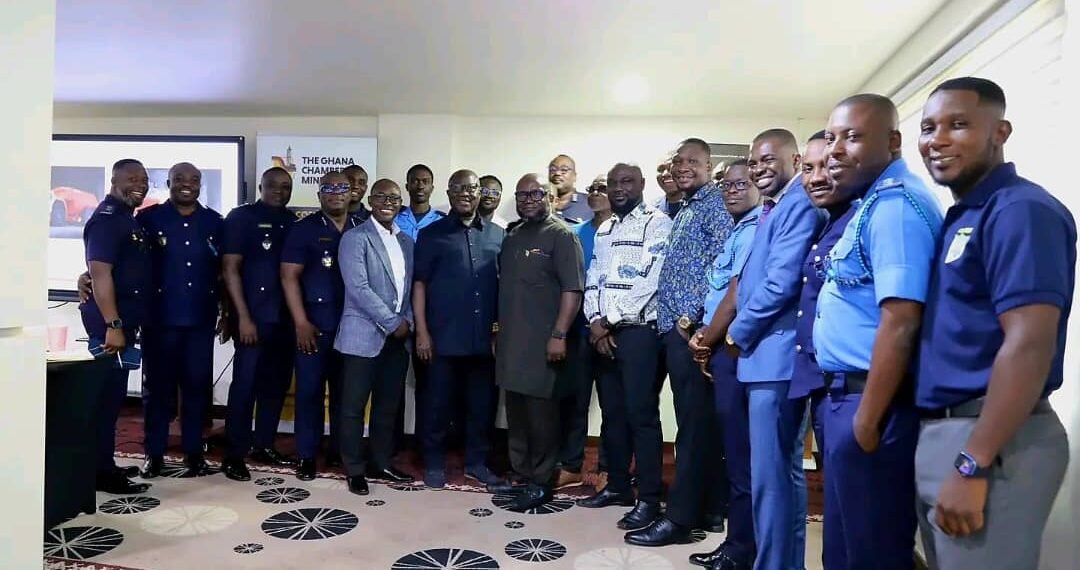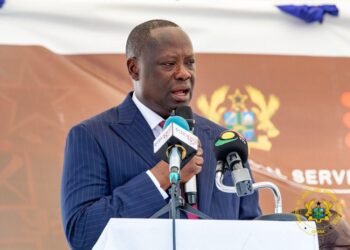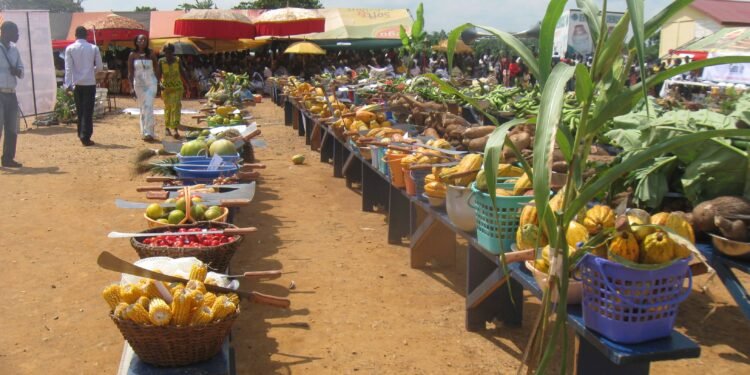The Ghana Chamber of Mines and the Ghana Revenue Authority (GRA) have reaffirmed their joint commitment to fostering transparency, accountability, and robust fiscal compliance within Ghana’s mining sector. This commitment was made clear during the launch of a capacity-building programme for GRA Schedule Officers in Accra.
Speaking at the opening session, Chief Executive Officer of the Ghana Chamber of Mines, Ing. Dr. Kenneth Ashigbey, described the initiative not merely as a routine training session, but a “strategic investment in capacity, transparency, and trust.”
“Your role as Schedule Officers of the Ghana Revenue Authority is integral to the success of Ghana’s revenue administration, particularly in the context of the mining industry.”
Ing. Dr. Kenneth Ashigbey, CEO of the Ghana Chamber of Mines
Highlighting the mining sector’s growing contribution to Ghana’s economy, Dr. Ashigbey revealed that in 2024 alone, the sector paid GH₵17.7 billion in taxes—a 51.2% increase over the previous year.
Notably, dividends to the state rose by over 600%, reaching GH₵1.03 billion, while mineral royalties surged by 76.7% to GH₵4.9 billion.
“The sector’s share of direct domestic taxes has grown to 24.3%, showing how central mining has become to our national revenue stream.”
Ing. Dr. Kenneth Ashigbey, CEO of the Ghana Chamber of Mines
He also noted that over the last decade, total mineral revenues exceeded USD 40.15 billion, with over USD 29 billion repatriated through Ghanaian financial institutions, reinforcing the sector’s strong local economic impact.

“Beyond revenue, mining companies have invested in social infrastructure like schools, clinics, and water systems.
“This is a testament to the positive impact of responsible mining on our nation’s progress and development.”
Ing. Dr. Kenneth Ashigbey, CEO of the Ghana Chamber of Mines
The capacity-building programme brought together GRA schedule officers, mineral tax experts, and key stakeholders to address technical tax issues specific to the mining sector.
Topics discussed included mineral royalties, corporate income tax, capital allowances, and transfer pricing—areas often fraught with technical complexity and compliance challenges.
“An informed and well-equipped tax workforce translates into better compliance, reduced disputes, and improved revenue performance for the state.”
Ing. Dr. Kenneth Ashigbey, CEO of the Ghana Chamber of Mines
He urged that the GRA be fully supported in its quest to develop sector-specific technical expertise, especially in high-stakes industries like mining.
GRA Commits to Transparency and Enforcement

Mr. Nii Marmah Sankah, Chief Revenue Officer and Acting Head of the Mining Department at the GRA, acknowledged the invaluable fiscal contributions made by mining companies in Ghana.
He also expressed appreciation to the Chamber for its continuous collaboration in shaping Ghana’s mining taxation regime.
“We recognise the significant role the Chamber has played in our revenue mobilisation efforts. We commend the sector for its transparency and responsibility.”
Mr. Nii Marmah Sankah, Chief Revenue Officer and Acting Head of the Mining Department at the GRA
He further applauded the Chamber’s role in regulating chemical use in mining, particularly efforts to curb the unregulated sale and use of hazardous substances like cyanide.
He added, “The GRA will collaborate with the Security Agencies to find a lasting solution to the sale of mercury on the black market,” underscoring the importance of inter-agency collaboration in improving environmental and tax compliance.

Mr. Sankah appealed to mining companies to boost production volumes, stating that increased output would translate directly into enhanced state revenues and macroeconomic stability.
He also praised the Chamber’s leadership for initiating the capacity-building initiative, noting that such engagements serve as a platform for equipping tax officers with the sector-specific knowledge required to administer and enforce mining-related taxes effectively.
The Chamber of Mines and the GRA plan to make the capacity-building programme a recurring initiative, with the long-term goal of embedding technical rigour and consistency across mining tax administration.
The strategic partnership signals a new era of accountability and alignment between Ghana’s mining sector and revenue authorities, especially at a time when both entities are seeking to reduce leakages, improve forecasting, and ensure sustainable national development through efficient resource governance.
As Ghana continues to position mining as a cornerstone of its industrial growth and economic diversification strategy, the collaboration between GRA and the Chamber of Mines could serve as a model for other sectors seeking to strengthen tax transparency and compliance.
READ ALSO: Mastercard and Access Bank Unveil Innovative Age-Segmented Card to Empower Ghana’s Youth























